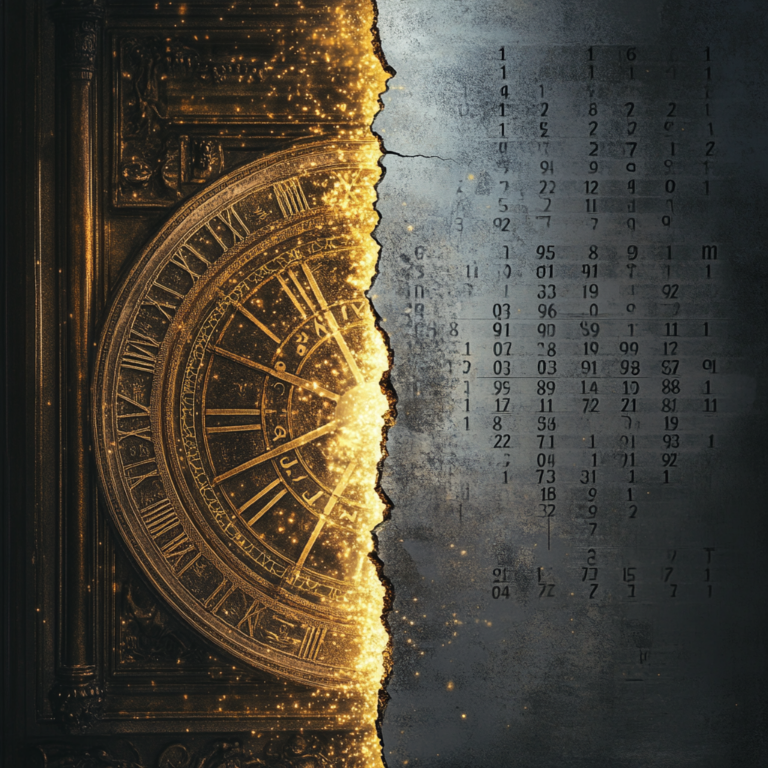BC/AD vs. BCE/CE: Stop the Bullshit
The BC vs. BCE debate highlights a broader cultural shift that we’ve been getting wrong. We’ve gotten high off our own intellectual fumes, smugly replacing BC/AD with BCE/CE as if we’ve outgrown history itself. Somewhere along the way, we started believing the nonsense we’re spouting, thinking it reflects progress. But does it really? Let’s dig into the history, implications, and absurdity of this cultural shift.
The Historical Roots of BC and AD
Before Christ (BC) and Anno Domini (AD, Latin for “In the Year of Our Lord”) have been the backbone of the Gregorian calendar for centuries. This system, rooted in Christianity, became the global standard due to Europe’s historical dominance in trade, colonization, and culture. Whether you’re religious or not, BC/AD transcended its origins to become a practical way of marking time, universally understood and deeply integrated into global systems. Learn more about the origins of the BCE/CE dating system.
The Gregorian calendar itself was introduced by Pope Gregory XIII in 1582 to correct the inaccuracies of the Julian calendar. It’s used by most of the world today not because of its religious roots, but because it’s functional. For centuries, BC/AD allowed scholars, merchants, and nations to synchronize events and timelines. Read about the Gregorian calendar’s history.
Enter BCE and CE: The Secular Rebrand
In recent decades, BC and AD have increasingly been replaced with BCE (Before Common Era) and CE (Common Era). The reasoning? Inclusivity and secularism. BCE/CE removes the overt Christian references, making the system more palatable to non-Christian and academic audiences. This shift gained traction in the late 20th century and is now the norm in many educational institutions. Explore the development of BCE/CE terminology.
But here’s the kicker: BCE/CE still operates on the same Gregorian calendar. The “common era” begins at the same point in time as AD—the estimated birth of Jesus Christ. The change in terminology doesn’t erase the Christian origins; it merely papers over them with a fresh coat of politically correct paint.
The Cultural Implications of the BC vs. BCE Debate
So, why does this matter? On the surface, it seems harmless. A few letters swapped, no big deal. But this rebranding reflects a broader trend of rewriting or sanitizing history to suit modern sensibilities. In our rush to avoid offending anyone, we’ve sacrificed authenticity.
Tradition vs. Modernity
This debate is about more than dates—it’s about the larger clash between tradition and modernity. The world is clearly re-entering a season where tradition is being embraced once again, as people tire of modernity’s hollow, performative shifts. Traditions like BC/AD represent stability, continuity, and respect for our shared history. Replacing them for the sake of inclusivity dilutes their meaning and disconnects us from the systems that shaped our world.
Erasing Roots
Replacing BC/AD with BCE/CE pretends that the calendar’s origins don’t matter. But they do. History isn’t clean or convenient, and trying to strip it of its cultural context does a disservice to everyone. The Gregorian calendar is a product of its time, just like the pyramids or the Magna Carta. Are we going to rename those to make them less tied to their origins too? Dive deeper into the BC and AD timeline.
Respect vs. Dilution
Respect doesn’t mean sanitizing or rebranding history to suit the lowest common denominator. It means honoring systems, structures, and traditions for what they are: a testament to human ingenuity and cultural identity. Diluting these traditions to make them more palatable undermines the very respect we claim to value.
Are We Smarter Than Generations Before Us?
Here’s the uncomfortable truth: we’re not as advanced as we like to think. Every generation fancies itself wiser than the last, but we’re just as prone to arrogance as those who came before us. The adoption of BCE/CE is a perfect example. We’ve convinced ourselves that this linguistic tweak is a hallmark of progress, when in reality it’s little more than intellectual vanity.
The generations that created and used BC/AD weren’t perfect, but they weren’t ignorant either. They developed systems, traditions, and tools that shaped the modern world. What are we contributing? Semantic changes and the illusion of moral superiority?
Why the BC vs. BCE Debate Matters
The BC/AD vs. BCE/CE debate isn’t just about dates. It’s about how we see ourselves and our history. Are we a society that respects its roots, even when they’re messy? Or are we so obsessed with appearing progressive that we’re willing to rewrite the narrative to fit a modern mold?
This debate also speaks to our cultural identity. We’ve grown increasingly disconnected from the historical frameworks that built our world. In trying to sanitize our past, we’ve lost sight of its lessons.
Stop the Bullshit
Cultural shifts should be meaningful, not performative. Let’s stop rebranding history to appease modern sensibilities and start respecting it for what it is—a testament to where we’ve been, not where we think we should be. The BC/AD system isn’t perfect, but neither is BCE/CE. Instead of pretending one is superior, let’s focus on what really matters: understanding and preserving our shared history.
The world is moving toward an embrace of tradition, and rightly so. Respect doesn’t mean obscuring history; it means honoring it. Let’s reject modernity’s obsession with superficial change and return to the stability and authenticity of systems that have stood the test of time.
We’re not as smart as we think we are. Maybe it’s time to step off the high horse and start acknowledging the value in the systems we’ve inherited. Let’s stop smelling our own farts and start breathing some fresh air for a change.




